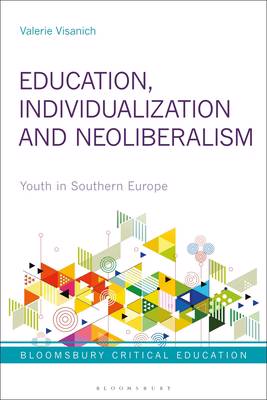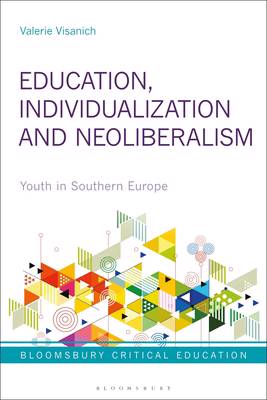
- Afhalen na 1 uur in een winkel met voorraad
- Gratis thuislevering in België vanaf € 30
- Ruim aanbod met 7 miljoen producten
- Afhalen na 1 uur in een winkel met voorraad
- Gratis thuislevering in België vanaf € 30
- Ruim aanbod met 7 miljoen producten
Zoeken
€ 254,45
+ 508 punten
Uitvoering
Omschrijving
Education, Individualization and Neoliberalism questions the individualization process in education in the Anglo-American context and analyses how this process is applied in the everyday life of millennials with tertiary education in Southern Europe. Valerie Visanich explores the close affinity of this concept to neoliberalism in contemporary societies, specifically by focusing on changes in education and employment. Using Beck & Beck-Gernsheim's concept of individualization to refer to increased freedom in one's life choices yet at the same time increased risks, Visanich unpacks the trajectories of life experiences of tertiary educated millennials in the contemporary neoliberal Anglo-American setting in relation to recent cultural and socio-economic changes. She examines how this individualized mode is adopted and adapted in countries across Southern Europe including Italy, Spain, Portugal, Malta and Greece - in locations where cultural conditions habitually cushion-out, often by family networks and patronage, some of the burdens of being young today.
Specificaties
Betrokkenen
- Auteur(s):
- Uitgeverij:
Inhoud
- Aantal bladzijden:
- 192
- Taal:
- Engels
- Reeks:
Eigenschappen
- Productcode (EAN):
- 9781350082458
- Verschijningsdatum:
- 25/06/2020
- Uitvoering:
- Hardcover
- Formaat:
- Genaaid
- Afmetingen:
- 156 mm x 234 mm
- Gewicht:
- 439 g

Alleen bij Standaard Boekhandel
+ 508 punten op je klantenkaart van Standaard Boekhandel
Beoordelingen
We publiceren alleen reviews die voldoen aan de voorwaarden voor reviews. Bekijk onze voorwaarden voor reviews.











